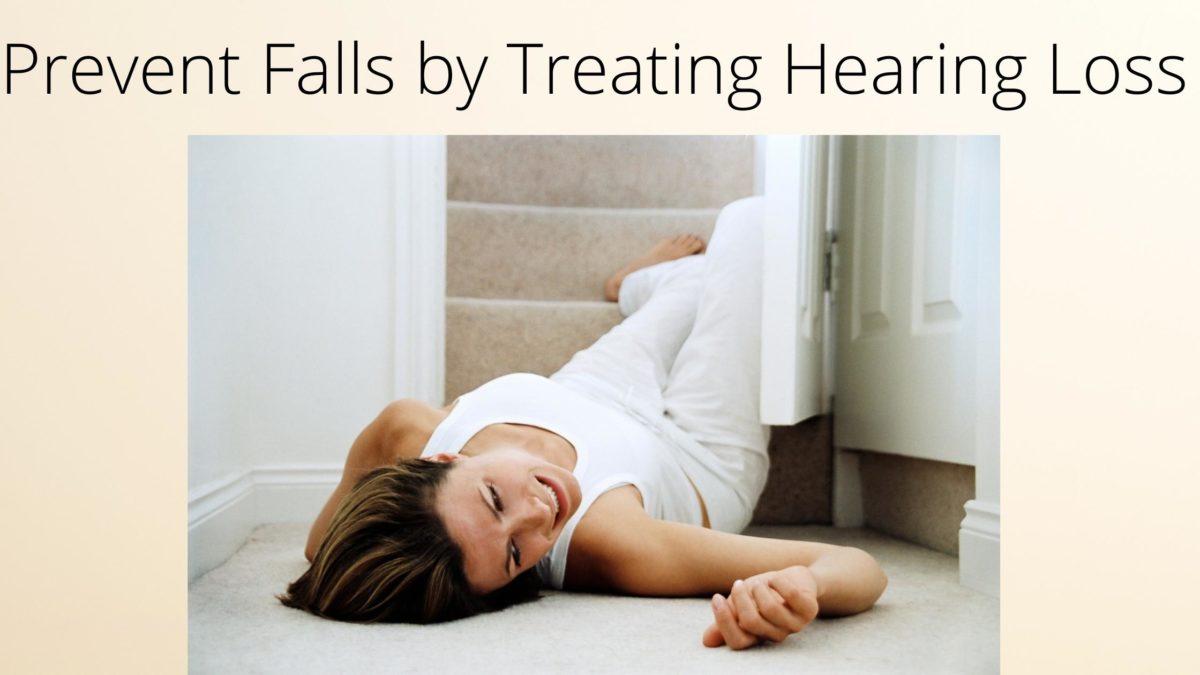Nearly 1 in 4 people, ages 65 and older, experience a fall every year. This same age group is also disproportionately impacted by hearing loss. According to the National Institutes on Deafness and Other Communication Disorders, 1 in 3 adults between the ages of 65-74 and 1 in 2 adults 75 and older have hearing loss. Various studies explore the connection between hearing loss and fall, identifying hearing loss as a risk factor. Research shows that hearing loss increases the risk of experiencing falls. People with hearing loss can be up to 3 times more likely to have a history of falling. Treating hearing loss is a great way to reduce this risk and increase one’s safety.
Link Between Hearing Loss & Falls
The Centers for Disease Control and Prevention (CDC) lists falls as a leading cause of death among people who are 65 and older. So identifying risk factors that can be modified to prevent this is a crucial way to enhance safety. Numerous studies show that hearing loss contributes to falling. This includes two major studies:
- Johns Hopkins University Study: researchers examined the impact of hearing loss on falls by assessing data collected by a 3-year national survey. It included 2,017 participants, ages 40-69, who completed a questionnaire about their history of falling as well as had their hearing examined. Researchers found that people with:
- mild (defined as a 25-decibel) hearing loss was almost three times more likely to have a history of falling.
- for every additional 10-decibel increase of hearing loss, the risk of falling increased by 1.4 times.
- University of Michigan Study: this study included 115,000 participants, 66 years and older. Researchers found that among the participants who were newly diagnosed with hearing loss:
- 13% experienced a fall within three years of their hearing loss diagnosis. Compared to 7.5% of people without hearing loss.
Both studies show that people with hearing loss were significantly more likely to have a history of falling compared to people without hearing loss.
How Can Hearing Loss Cause Falls?
The correlation between hearing loss and falls highlights that these two health factors are related. Experts suggest that hearing loss can increase the risk of falls in a few ways:
- Decreases spatial awareness: hearing loss reduces an individual’s ability to detect and process speech and sound. This creates various symptoms that make hearing challenges. A reduced capacity to hear means that people may not be able to hear all of the sounds in their environment. This includes warning signs or alerts like sirens, voices, crashing noises, etc. This decreases spatial awareness which increases the chances of experiencing falls.
- Causes cognitive overload: hearing loss not only happens in the ears but also in the brain. There are areas of the brain that are responsible for processing speech and sound. Hearing loss results in these areas being less active and they can even possibly shrink (this is known as brain atrophy). This causes other parts of the brain to compensate by intervening to help with congestive functions. This is tasking and creates cognitive overload which can mean fewer resources are available to maintain balance and spatial awareness, contributing to a greater risk of falling.
- Contributes to balance issues: the vestibular system is housed in the inner ear and is how we maintain balance. Semicircular canals in the inner ear relay information about balance and motion to the brain. Hearing loss often occurs as a result of damaged hair cells in the inner ear and this can also impact the vestibular system, resulting in balance issues.
If you have experienced any changes to your hearing health or find yourself not hearing as clearly, it is important to have your hearing assessed. Treating hearing loss can benefit your health in countless ways including reducing the risk of experiencing falls.
Treating Hearing Loss Can Prevent Falls
The most common treatment for hearing loss is hearing aids. These are electronic devices that absorb and process sound which provides the auditory system with ample support. This alleviates hearing loss symptoms and makes it easier to hear. Navigating your daily environments with increased capacity to hear contributes to enhanced safety and spatial awareness. This reduces the risk of experiencing falls and the accidental injuries that result from them. Call us today to prioritize your hearing health!

